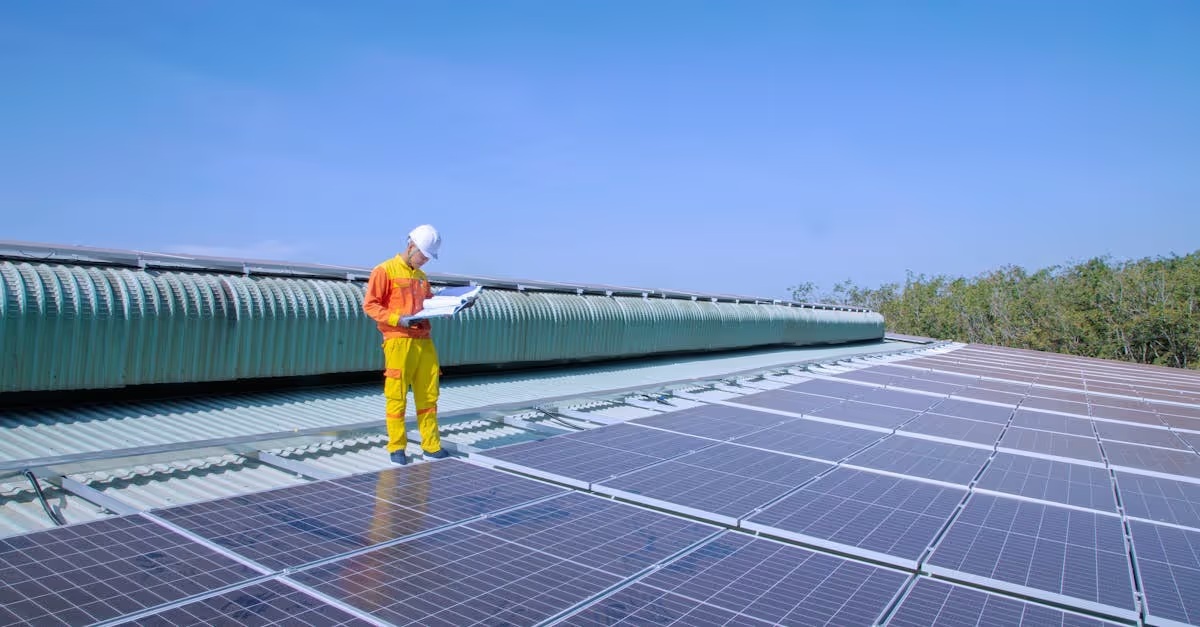Key Takeaways
- Energy Efficiency: Heat pumps can reduce energy costs by up to 70% compared to traditional heating methods, making them a cost-effective choice for pool owners.
- Environmental Impact: By utilizing renewable energy sources, heat pumps significantly lower carbon emissions, helping to protect the environment and promote sustainable living.
- Installation Process: A proper installation involves assessing the pool’s size and location. Professional installation is recommended to ensure optimal performance and efficiency.
- Types of Heat Pumps: Both air source and ground source heat pumps offer unique benefits, with air source pumps being efficient in diverse climates and ground source pumps providing reliable heat year-round.
- Maintenance Requirements: Regular maintenance, such as cleaning filters and checking refrigerant levels, is crucial for prolonging the lifespan and efficiency of heat pumps.
- Advanced Technology: Modern heat pumps often come with features like remote monitoring and control, enhancing user experience and energy management.
As we dive into the world of pool heating, it’s hard to ignore the growing popularity of heat pumps. Did you know that heat pumps can reduce energy costs by up to 70% compared to traditional heating methods? This impressive efficiency not only saves us money but also makes a significant impact on our environment by lowering carbon emissions.
Installing a heat pump for our pool isn’t just a smart financial decision; it’s an eco-friendly choice that promotes sustainable living. With the ability to maintain comfortable water temperatures year-round, heat pumps enhance our swimming experience while contributing to a greener planet. Let’s explore the essentials of installing these innovative systems and the benefits they bring to our pools and the environment.
Overview of Installing Heat Pumps for Pools
Installing heat pumps for pools provides an effective solution for maintaining comfortable water temperatures while reducing energy costs. Heat pumps utilize electricity to transfer heat from the air to warm the water, leading to savings of up to 70% on energy expenses compared to traditional heating methods. This cost-effectiveness makes them an appealing choice for pool owners looking to maximize enjoyment without breaking the bank.
The installation process involves several steps. First, we assess the pool's size and location to determine the appropriate heat pump type and size. Next, we prepare the site by ensuring proper clearances and drainage. It’s crucial to position the heat pump in a location with adequate airflow for optimal performance. Professional installation can make a significant difference, as incorrect setups can lead to inefficient heating and increased operational costs.
Energy efficiency stands out as a primary benefit. For instance, heat pumps not only heat the pool but also run on renewable energy sources. They consume less electricity than gas heaters and traditional electric heaters. This efficiency translates to reduced carbon emissions, aligning our enjoyment of outdoor spaces with a commitment to environmental health. Want to feel good about your pool season? A heat pump provides that peace of mind without guilt!
Heat pumps also contribute to a sustainable lifestyle. By using renewable energy and lowering reliance on fossil fuels, we support eco-friendly practices that can have a broader impact on the planet. As communities become more aware of their carbon footprints, embracing technologies like heat pumps showcases our collective commitment to a greener future.
Moreover, the integration of technology can enhance our experience with heat pumps. Advanced features allow for remote monitoring and control through mobile apps. Imagine adjusting the temperature from your living room! These capabilities not only simplify operation but also improve energy management. More efficient heating means cost savings. How great is that?
Choosing the right heat pump requires some research. We can start by looking at brands that offer reliable performance and warranties. Gathering service information, including who to turn to for support, is essential. Reliable service ensures our investment remains protected, which benefits long-term enjoyment.
We should also consider maintenance requirements. Regular service checks, such as cleaning filters and checking refrigerant levels, help prolong the heat pump’s lifespan. Investing time in maintenance means more efficient operation and fewer unexpected repairs.
Types of Heat Pumps
Heat pumps come in various forms, each offering specific benefits for pool heating. Let's dive into the two most popular types: air source heat pumps and ground source heat pumps.
Air Source Heat Pumps
Air source heat pumps work by extracting heat from the ambient air. They operate efficiently in diverse climates, making them suitable for many areas. These pumps can heat water even in lower temperatures, typically down to 40°F (4°C).
Air source heat pumps are renowned for their energy efficiency. They can reduce energy bills significantly, often efficiently transferring up to five times more heat energy than the electricity they consume. This efficiency translates into substantial cost savings for us over time. Plus, installing an air source heat pump is usually simpler than other types, saving us time and effort.
Moreover, their compact size allows for flexible placement near our pools. If we’re considering an efficient way to keep our pools warm, air source heat pumps provide an excellent option.
Ground Source Heat Pumps
Ground source heat pumps, or geothermal heat pumps, tap into the steady temperatures found underground. They utilize a series of buried pipes to absorb heat from the ground, providing reliable heating year-round. Even in extreme weather conditions, ground source systems maintain stable performance.
The main draw of these pumps is their impressive efficiency. They often consume less electricity than other heating methods while delivering consistent heat. Their installation can be more involved, requiring digging or drilling, but the long-term energy savings can be worth the effort.
Ground source heat pumps also contribute to environmental sustainability by reducing carbon footprints. We can feel good about using a system that aligns with eco-friendly practices, nurturing our pools while caring for the planet. Given their efficiency and reliability, these pumps represent a smart investment for pool owners.
Energy Efficiency of Heat Pumps
Heat pumps offer impressive energy efficiency for pool heating. They capture heat from the air, transferring it to pool water while using minimal electricity. This process can reduce energy costs by up to 70% compared to traditional heating methods. We appreciate how this technology not only saves money but also lessens our carbon footprint.
Seasonal Performance Factors
Performance of heat pumps can change with the seasons. In warmer months, they draw more ambient heat, efficiently warming the pool. As temperatures drop, their efficiency may decrease, but many heat pumps still operate effectively down to 40°F. We should remember to consider our local climate conditions when selecting a model, ensuring we choose one optimized for our specific needs.
Comparison with Traditional Heating Methods
Heat pumps stand out against traditional pool heaters, like gas boilers. Gas heaters burn fuel, leading to higher energy costs and increased emissions. Heat pumps work differently, relying on renewable energy sources, which positions them as a greener alternative. Many of us find peace of mind knowing we're being environmentally conscious while enjoying a warm swim.
In short, heat pumps present an efficient, eco-friendly approach to pool heating, transforming our swim experience without straining our budgets or the planet. So, are we ready to dive into this sustainable pool solution?
Environmental Benefits
Heat pumps provide significant environmental benefits, making them a smart choice for pool heating. Their operation contributes to reduced carbon emissions while promoting sustainability.
Reduction in Carbon Footprint
Heat pumps directly lower our carbon footprint. By taking ambient heat and transferring it to pool water, they use less electricity than traditional heating systems. For instance, using heat pumps can cut energy costs by up to 70%, reducing greenhouse gas emissions. By installing an energy-efficient heat pump, we actively contribute to a cleaner environment. The more pools that transition to heat pumps, the greater the impact on our planet. What’s our collective impact? Imagine each community with pools embracing this eco-friendly technology.
Sustainable Energy Utilization
Heat pumps efficiently harness renewable energy, furthering sustainability efforts. They utilize the heat from the air or ground rather than generating new heat, which helps reduce reliance on fossil fuels. For example, a typical air source heat pump operates effectively even at temperatures as low as 40°F. This ability to function efficiently in various conditions promotes consistent energy savings. By choosing heat pumps, we’re part of a global movement toward greener technologies. How are we taking advantage of these alternatives to preserve our planet for future generations? These small, impactful decisions lead to meaningful change.
Installation Process
Installing a heat pump for your pool involves several key steps that make a difference in performance and efficiency.
Site Assessment and Preparation
Assessing the site begins with measuring the pool's size and understanding its location. Each pool is distinct, requiring careful evaluation to choose the right heat pump. During this phase, we'll consider factors like sunlight exposure and proximity to power sources. We want to prepare the area adequately to allow for proper airflow, which is crucial for optimal heat pump performance. Clearing any obstructions and ensuring good access for installation are essential preparation tasks. We’ll also make sure that we have the necessary permits and adherence to local codes.
Professional Installation vs. DIY
While DIY projects can be tempting, professional installation often provides a more reliable outcome. Technicians trained in installation possess the expertise needed for correct setup. They know how to handle the specifics, ensuring everything functions smoothly. We can face unexpected challenges when attempting a DIY installation, which can lead to inefficiencies and wasted time. Professionals can complete the job with efficiency, minimizing disruptions. They'll also handle connections to existing pool equipment, creating seamless integration right away.
Conclusion
Choosing heat pumps for our pools isn't just a smart financial decision; it's also a commitment to sustainability. By harnessing renewable energy sources we can enjoy our pools while significantly reducing our carbon footprint.
The installation process may seem daunting but with professional help we can ensure optimal performance and efficiency. The long-term benefits of energy savings and environmental impact make heat pumps an attractive option for any pool owner.
As we embrace these eco-friendly solutions we contribute to a healthier planet and promote a more sustainable lifestyle for ourselves and future generations. Let’s make the switch and enjoy our time by the pool with peace of mind.
Frequently Asked Questions
What are heat pumps for pool heating?
Heat pumps for pool heating are energy-efficient systems that transfer heat from the air or ground to warm pool water. They can reduce energy costs by up to 70% compared to traditional heating methods while providing consistent pool temperatures.
How do heat pumps save energy?
Heat pumps save energy by utilizing renewable energy sources, capturing ambient heat from the air or ground, and converting it to warm the pool. This process requires less electricity than conventional heaters, lowering overall energy consumption and costs.
What is the installation process for heat pumps?
The installation process for heat pumps involves assessing the pool's size and location, preparing the site, and ensuring adequate airflow. Professional installation is recommended for optimal performance and seamless integration with existing pool systems.
What types of heat pumps are available?
There are primarily two types of heat pumps: air source and ground source. Air source heat pumps extract heat from the air and are easier to install. Ground source heat pumps utilize underground temperatures for reliable heating, offering long-term energy savings.
How do heat pumps compare to traditional heating methods?
Heat pumps are more energy-efficient than traditional heating methods like gas boilers. They operate on renewable energy, have lower energy costs, and produce fewer carbon emissions, promoting an environmentally-friendly heating solution.
Do heat pumps work in colder temperatures?
Yes, heat pumps continue to operate effectively even in colder temperatures, down to about 40°F. However, their efficiency may vary with the seasons, so it's important to select a suitable model for your climate.
How can I choose the right heat pump for my pool?
To choose the right heat pump, research reputable brands and consider factors like pool size, location, and climate. It’s also wise to consult with professional installers who can recommend options based on your specific needs.
What maintenance do heat pumps require?
Regular maintenance for heat pumps includes checking filters, cleaning the unit, and ensuring proper airflow and operation. Regular upkeep prolongs the system's lifespan and maintains its energy efficiency, ensuring optimal performance over time.
What are the environmental benefits of using heat pumps?
Heat pumps significantly reduce carbon footprints by utilizing ambient heat, decreasing reliance on fossil fuels, and lowering greenhouse gas emissions. Transitioning to heat pumps contributes to overall sustainability and eco-friendliness in communities.






